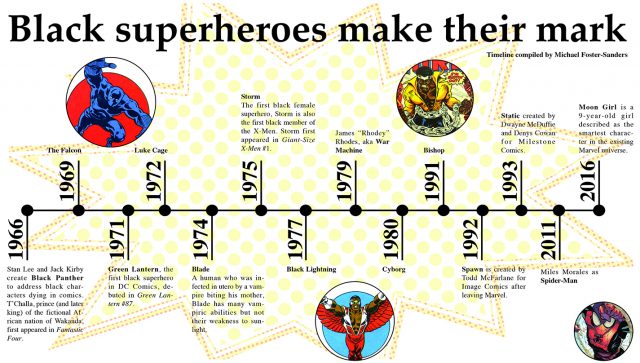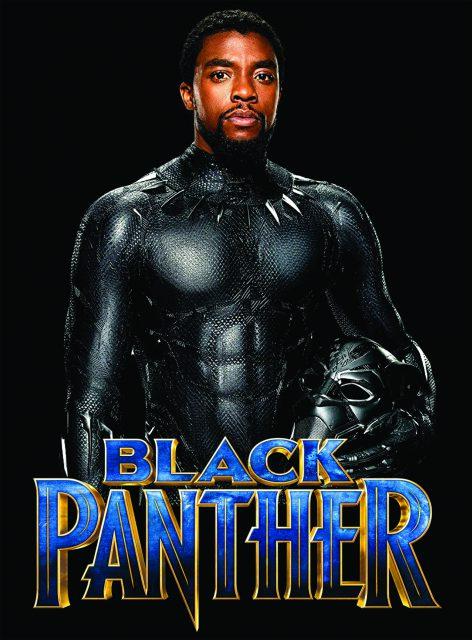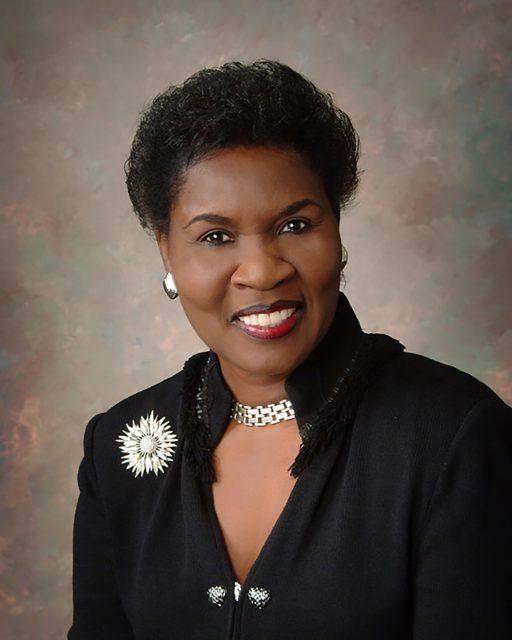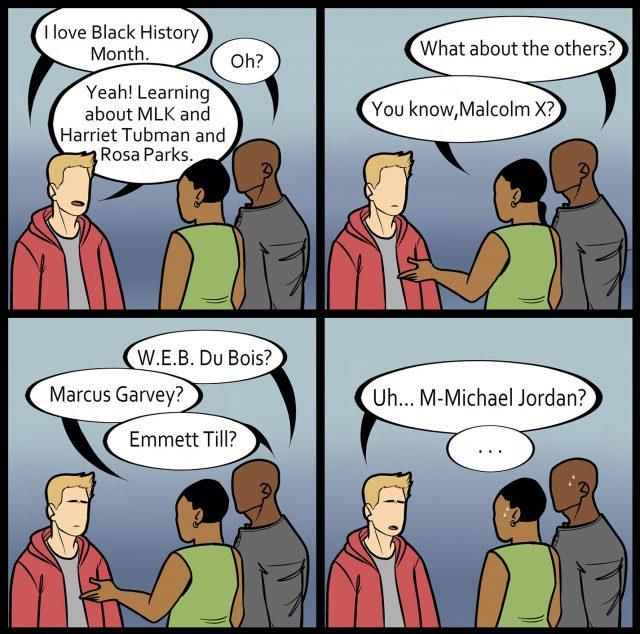By Jamil Oakford/managing editor
It is the fifth-largest movie opening of all time.
It is the biggest opening for a film released in February.
Blockbusters are a dime a dozen, but Black Panther has made its mark in cinematic history because of its predominantly black cast.
For some, like SE student Justin Valentine, it’s made them feel like they missed out for not snagging a ticket during opening weekend.
“I’ve seen previews. My friends have already seen it, and they’re paying to see it again,” he said.
Valentine said his friend, SE student Justin Adams, already saw it three times before the start of its second weekend.
“Even my parents — in fact, my parents told me they were willing to pay for my own ticket for me to see it,” Valentine said. “They’ve also been back a couple times, which is something they don’t really do.”
For NW dance associate professor Kim Jackson, its appeal lies in its nearly all-black cast and the importance of representation, and the film’s box office success sends a powerful message about the need for diversity in film.
“I think the message is that people, not just black people, are receptive to seeing themselves on screen,” she said. “Seeing yourself on the big screen is one way to understand how people perceive you and how you may perceive yourself. Representation matters.”
Adams said he’s planning on paying to see it “a few more times” because it was so good.
Jackson said she saw it three times before Black Panther’s second weekend.
“I have not been this excited for anything since Sergei, the first black muppet on Sesame Street in 2010 talking about the uniqueness of hair,” she said.
Adams said he could feel the anticipation of the crowd opening night. With how excited the audience was, he could not begin to describe how unique that experience was.
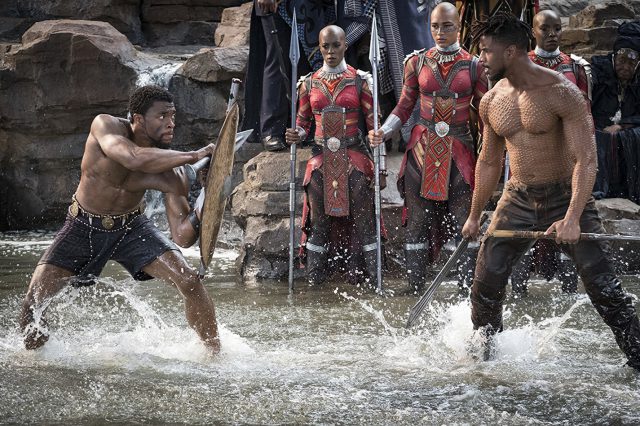
Photos courtesy of Disney/Marvel Studios
“People were in there turning up,” he said. “Half of the theaters were playing Black Panther, so everyone there was going to see it. Everybody was getting hyped. It was lit.”
Between those audience members that dressed up and the open cheering in the auditorium, Adams said everyone was going crazy.
But it isn’t just the black cast that’s kept him coming back. It’s the film itself.
“It was so good,” he said. “The fighting scenes, the characters — it was amazing.”
One of the characters Adams could identify with was Erik Killmonger.
“He’s characterized as an African-American,” he said. “So it’s just cool to understand that and see where he was coming from with some of his prejudices and his mindset about life and coming from America.”
Jackson agreed that Black Panther delivered likeable characters.
“Black Panther offers its audience a wide range of well-developed characters that begin to humanize the African and African-American experience,” she said.
Black Panther earned $235 million domestically in its four-day opening weekend and just over $400 million worldwide. It didn’t slow down in its second weekend either. According to Box Office Mojo, the film reached the threshold of $700 million worldwide and another $150 million domestically. In its 10-day run, it has already outpaced Star Wars: The Last Jedi’s 10-day run by approximately $30 million.
Jackson said because it’s a full-scope film, audiences can walk away feeling like they got a complete story with some added themes as well. One of the themes Jackson said she liked was the relationship between two groups of black people.
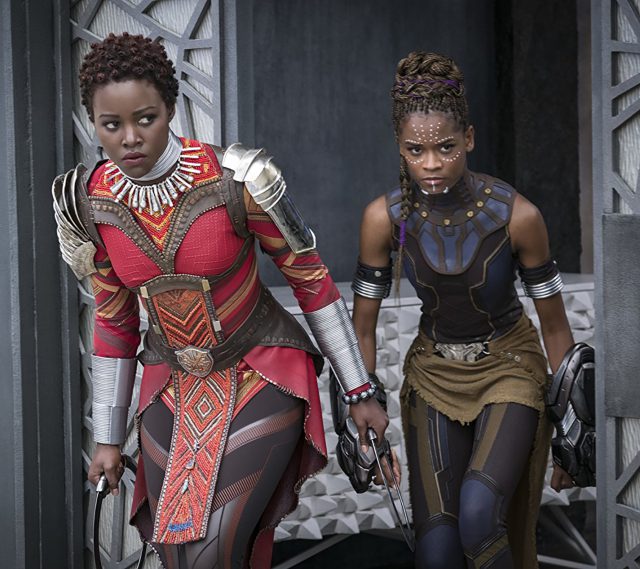
Photos courtesy of Disney/Marvel Studios
“I appreciate the tension between tradition and innovation as the director, Ryan Coogler, was attempting to express,” she said. “It also deals with the cultural divide between Africans and African-Americans.”
Another theme she enjoyed seeing on screen was black women and the beauty standard they are held to, Jackson said.
“I was moved, touched and inspired not only to see dark-skinned women be revered but display just as much physical strength as their male counterparts,” she said.
Out of all the characters, one of Adams’ favorites was Okoye, the personal guard to King T’Challa in the film. Her strength and presence especially during a fight scene made him gravitate toward her, he said.
Part of its success is because of how rare Hollywood has told a story like this one both on screen and behind the camera, Jackson said.
“One of the themes that sticks out the most to me is black people saving themselves,” she said. “They get an opportunity to be the hero of their own story.”
Even more than that, Jackson enjoyed the feeling of belonging when she viewed the film, a feeling most films don’t give her.
“It’s one of the few opportunities where one can bear witness to a story being told by people who it is about,” she said. “It is one of the few movies I have watched where I didn’t feel like an outsider.”
